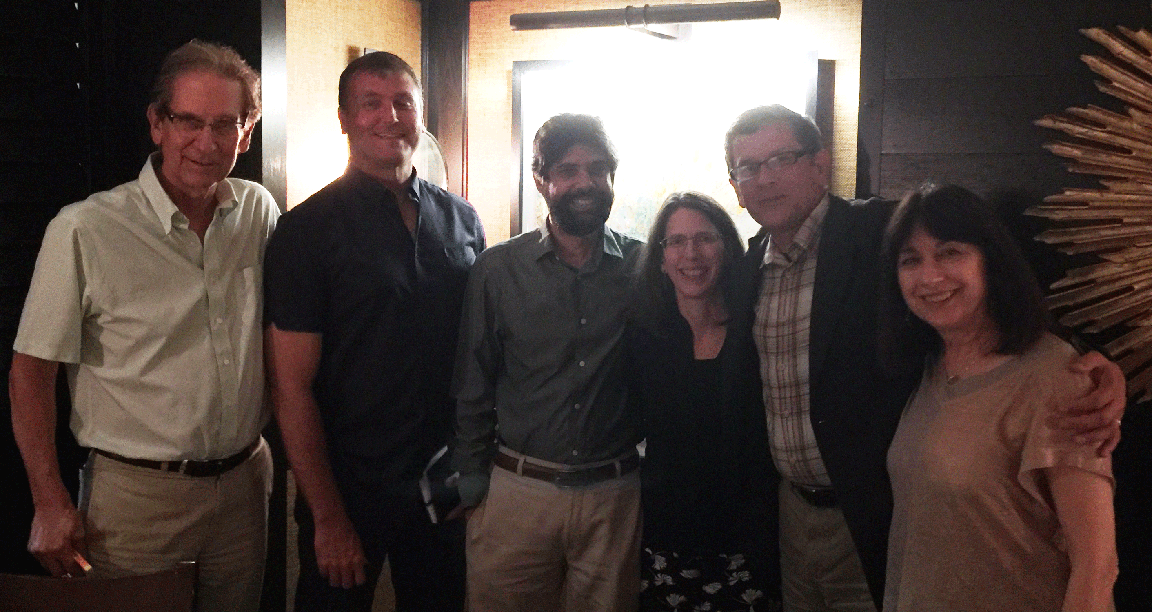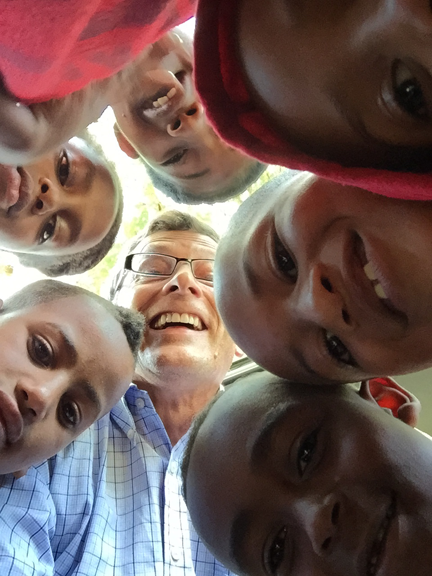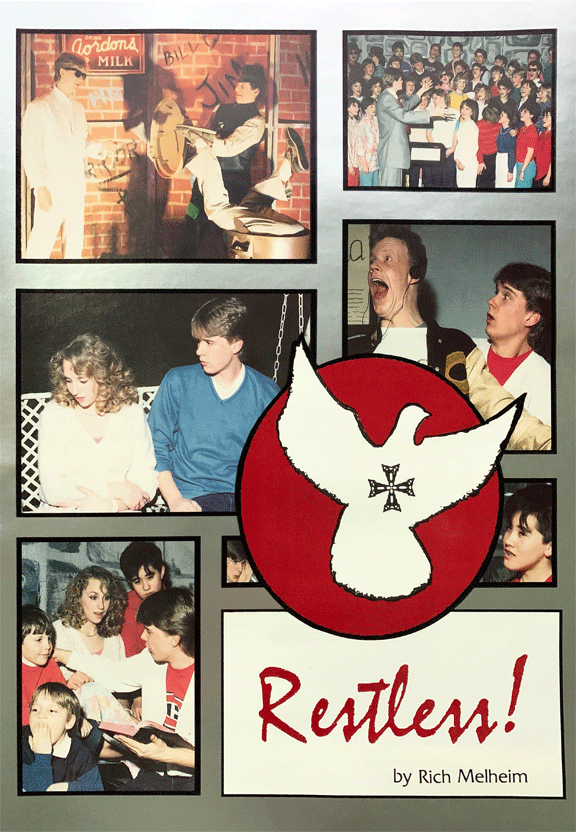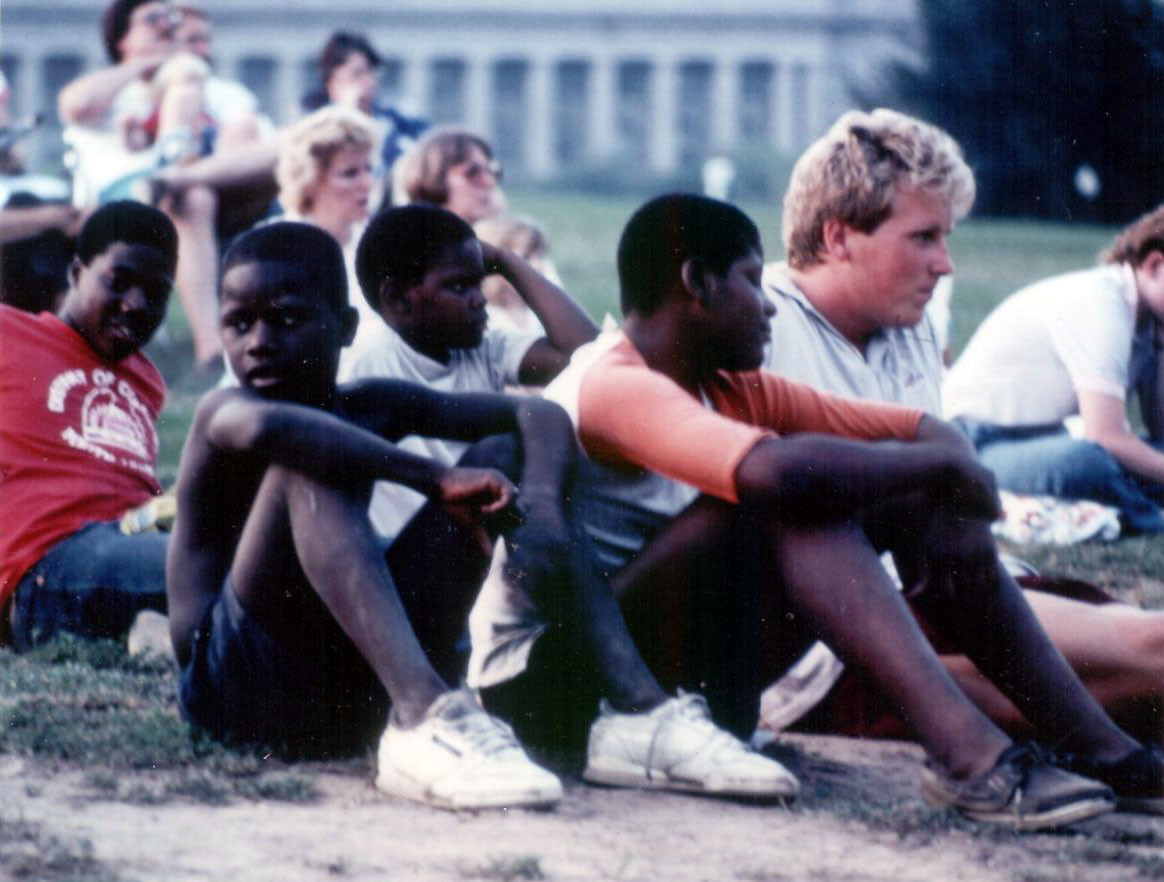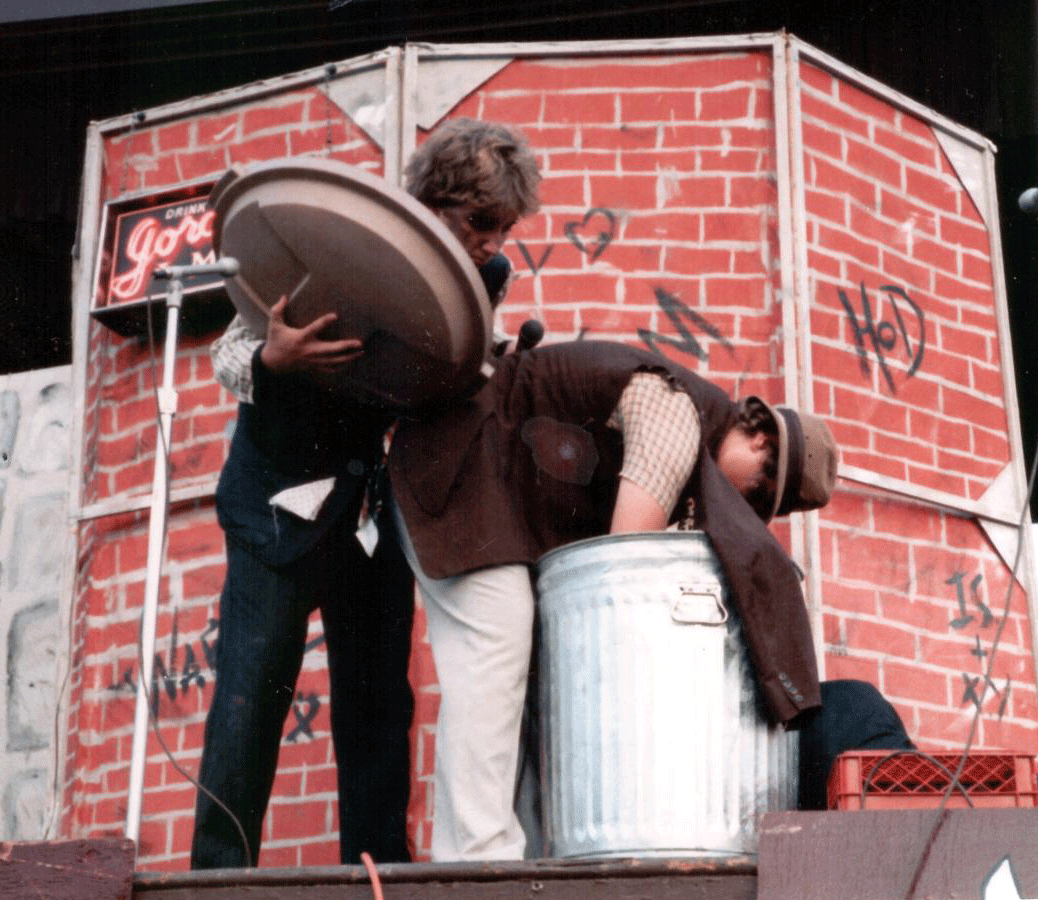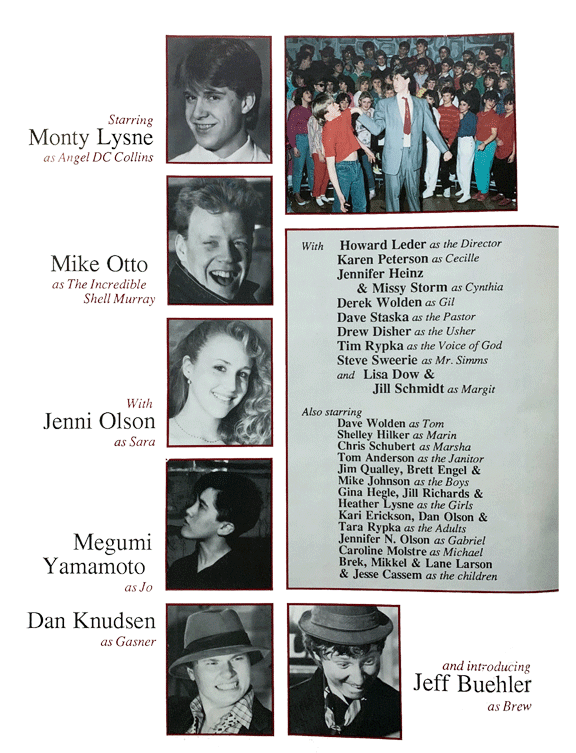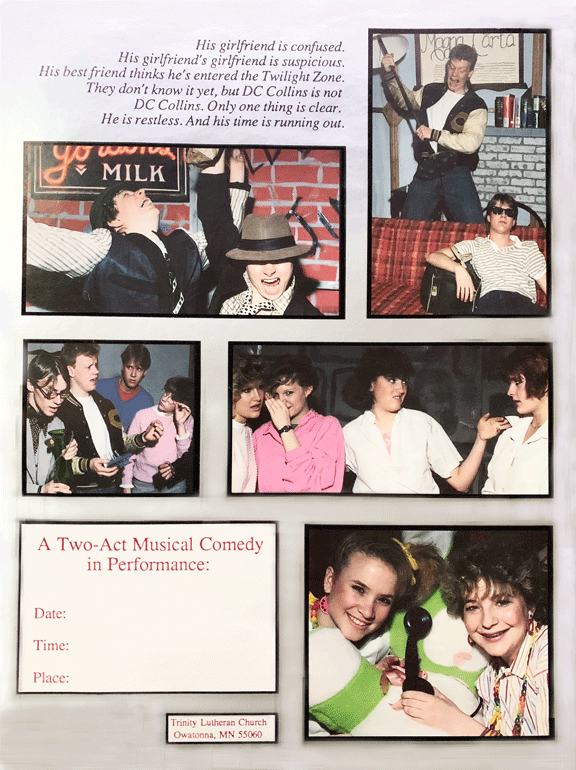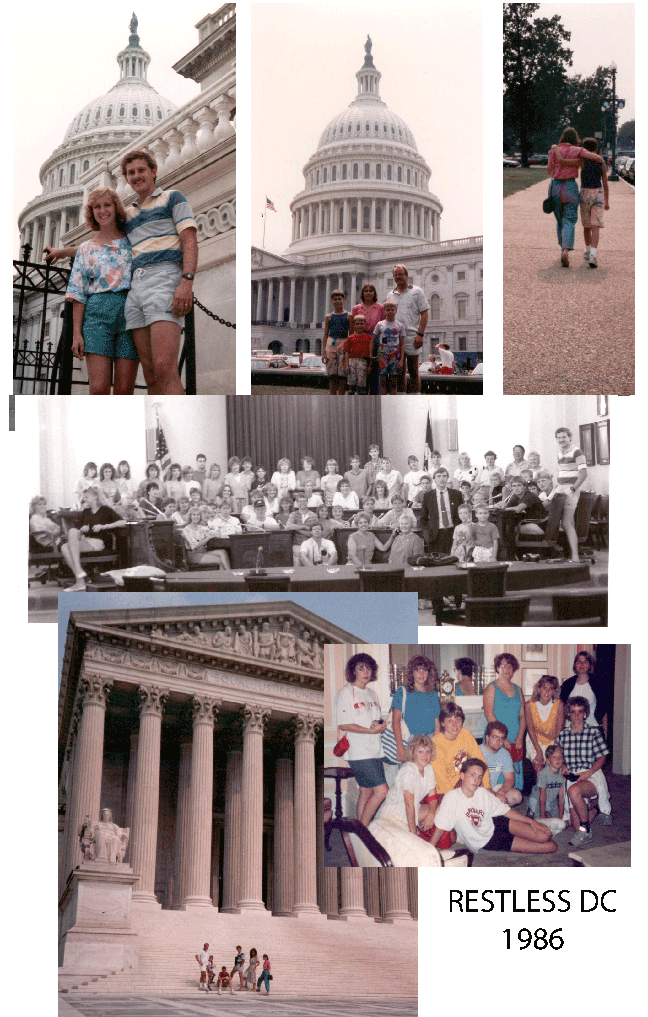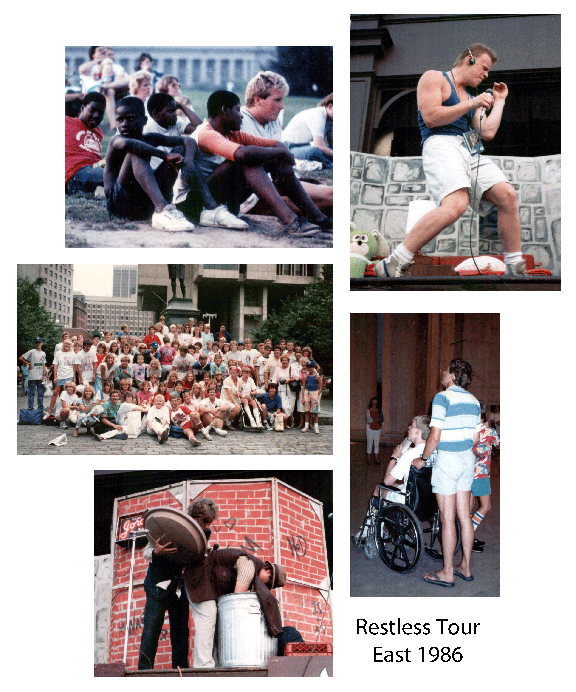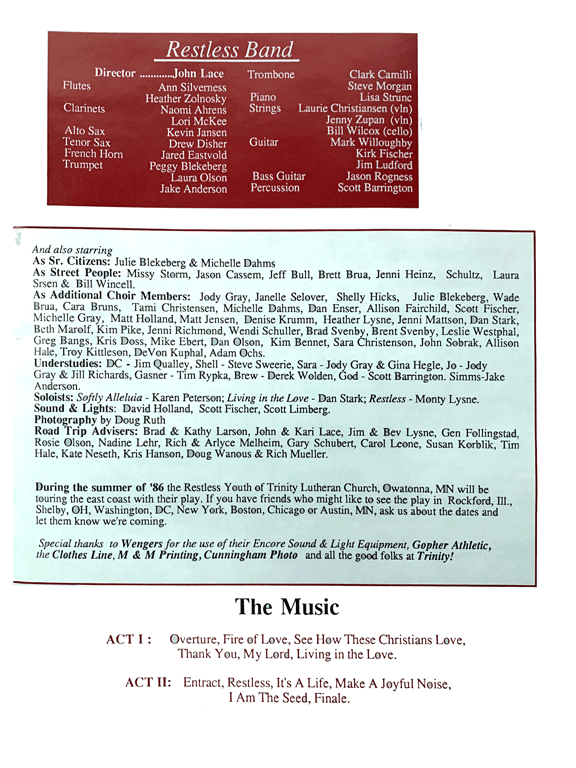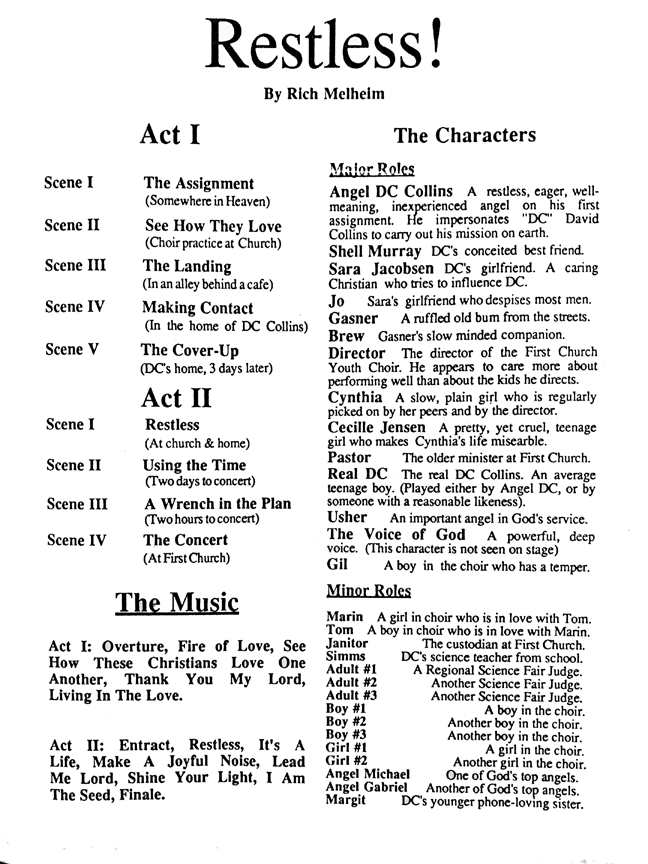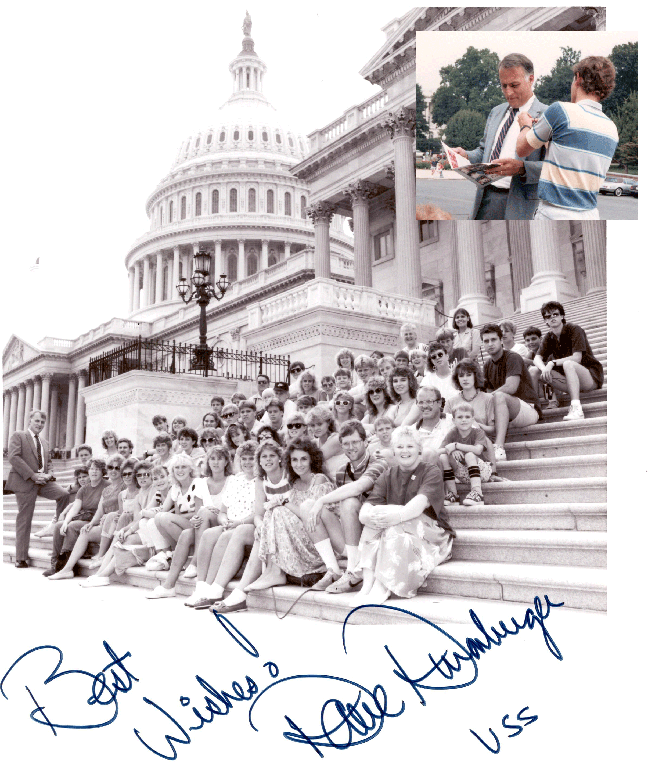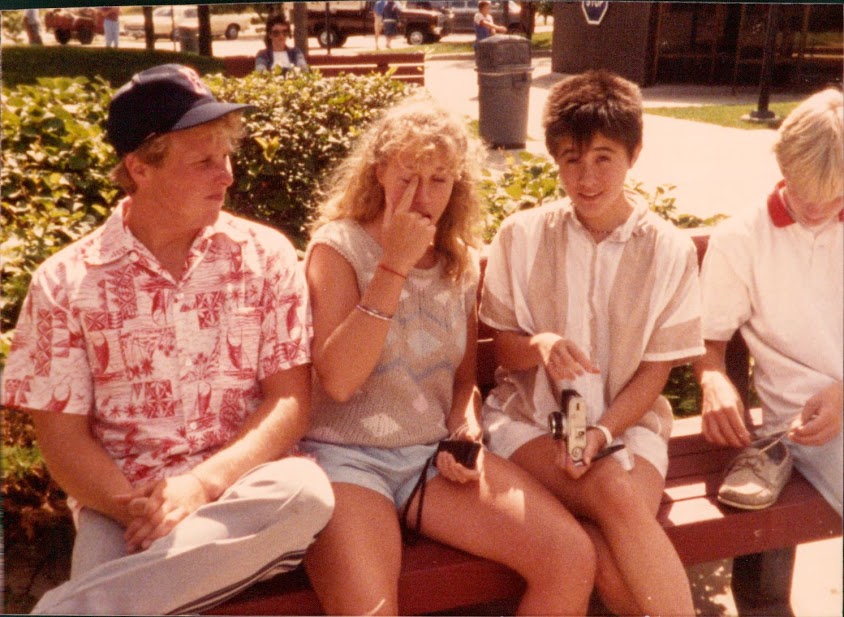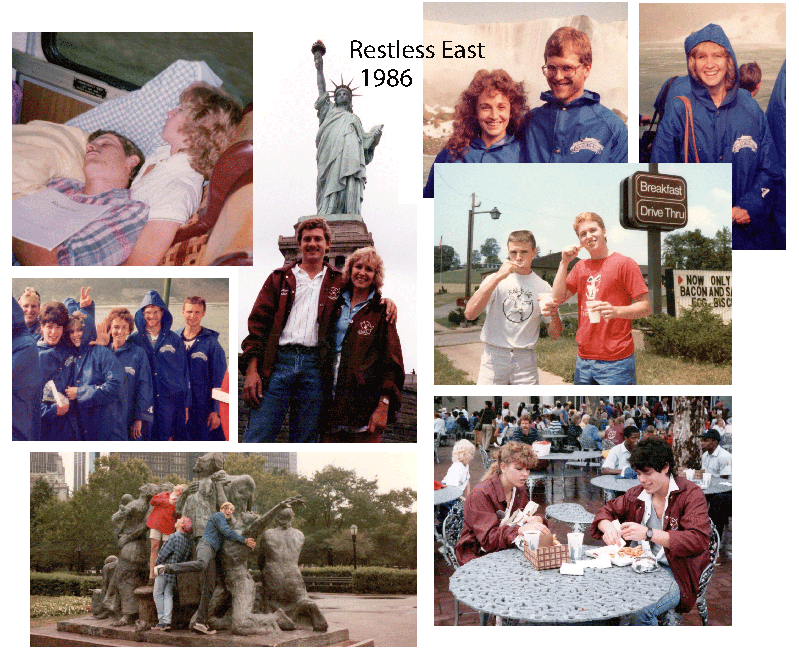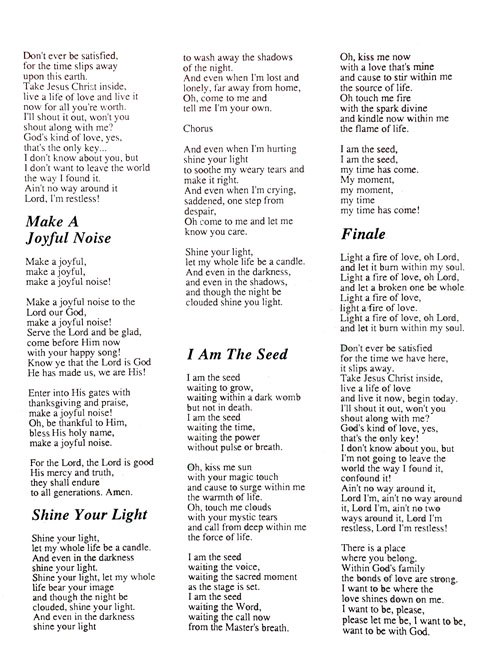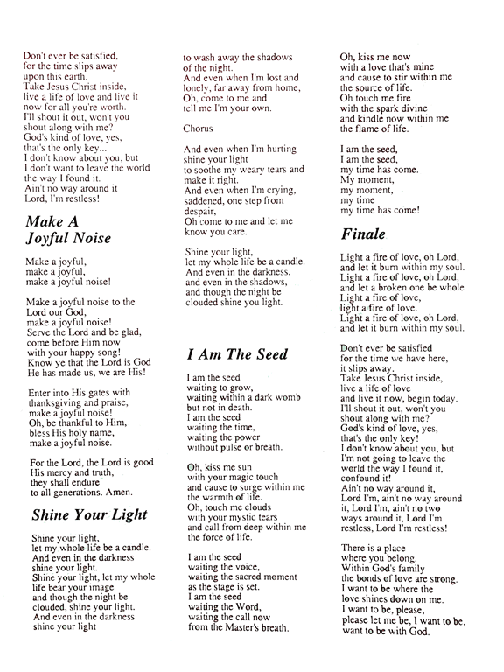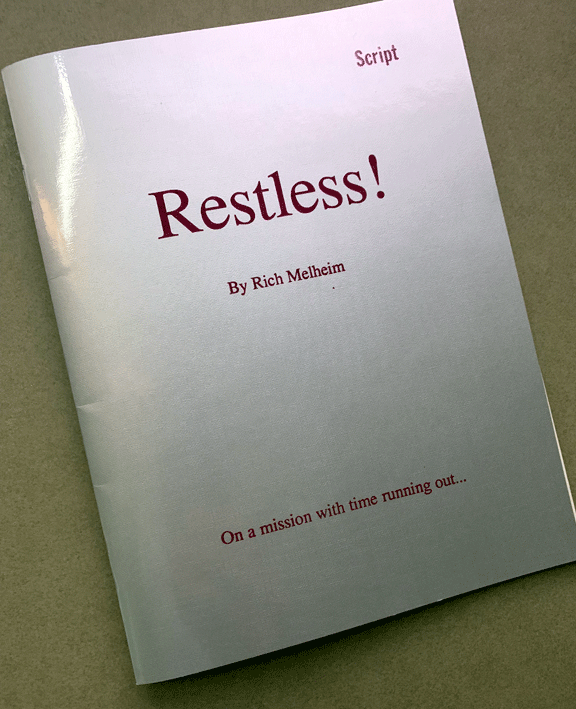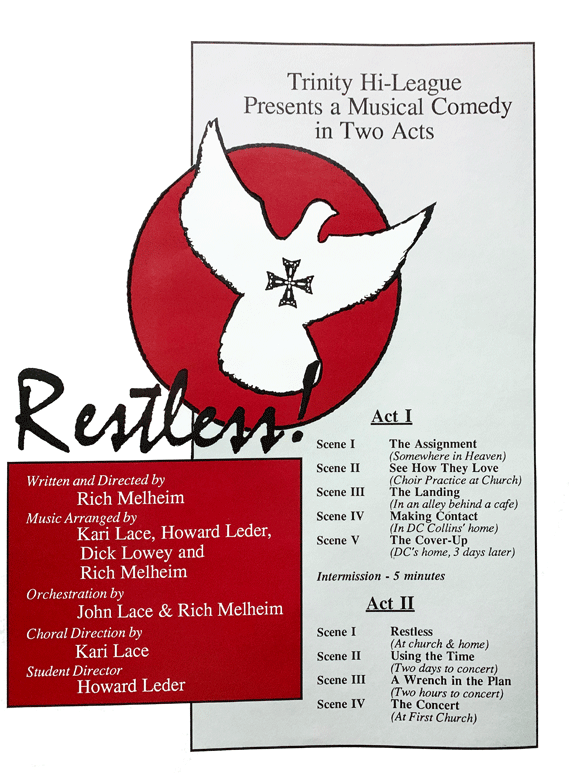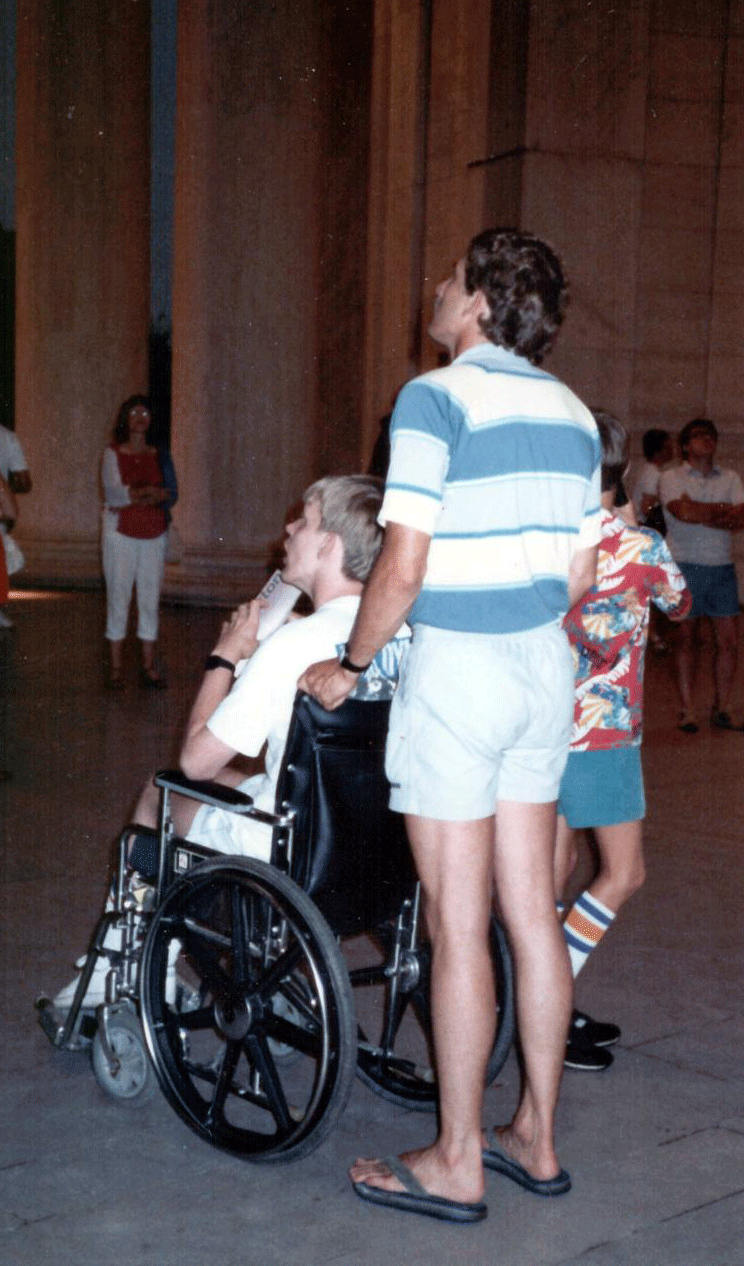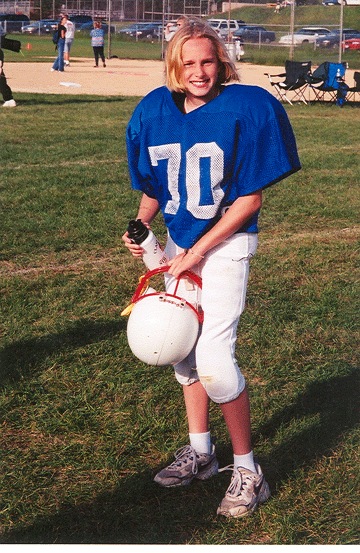To re+cognizesomething, the brain must first cognize it. The child, teen, adult or aging brain must first be familiar with the new letter, number, word, concept. A child learning to speak must hear millions of words, watch hundreds of thousands of items being associated to words and watch thousands of smiling lips moving as they connect to the near-mystic harmony linking sense to sound and sight. A child learning to grasp, to walk, to ride a bicycle must be developmentally, emotionally, and motivationally ready to take the first movements that preceed and set up the second movements that allow the first practices, mistakes, retries, and eventual first small successes in grasping, walking, and riding that bike.
Everything we learn in the brain, the body and the environment is built on a myriad of small exposures, gradual awarenesses, and larger constructs.
Nothing comes from nothing. Even the “ah-ha!” lightening bolt revelation doesn’t show up out of nowhere. Helen Keller’s “ah-ha!”, Edison’s light bulb, Einstein’s theory of relativity, and your very first word were all built on the exposure, experience, connections and networking of billions of neural connections.
An individual neuron firing alone in the human brain doesn’t mean anything. It is what it touches, and what it touches touches that allows us to see, hear, taste, smell, touch, feel and understand. The human eye can see an individual photo from a mile away. But an individual photon of light hitting the retina doesn’t mean anything. It is the symphony of pin-pricking photons swirling together, overlapping and bombarding the retina simultaneously that allows us to see the baby’s smile, the dancing flame, the starry sky.
Everything is context. Everything is connected.
Korean Intro to Dr. Rich
Bill Gates' Favorite Infographic
Maybe the whole world’s not going to hell in a hand basket.
Coloring the World with Paul Z from Crayola
Paul Z, SVP at Crayola International shares his take on, life, arts, and enriching the world through color.
Paul’s passion is inspiring creativity, expressing in colour and asking the greatest question: “What If?” His career has always been about innovation and creating both “New To World” and “New to Market” opportunities. He has been fortunate to travel the world and work with inspiring people from all walks of life… from doctors and educators to philosophers and most importantly, children, who will one day change the world.
His belief that you need to truly think like a child to really drive true ground breaking technology has been routed throughout his career. Paul was shaped by being raised the youngest of ten children, having parents who believed the arts could change the world, raising three kids and by admiring those that express their passion and creativity in all that they do.
Paul currently resides in a plane that covers the globe. And yes, he has frequent flyer status.
The RICH Learning Summer Team
Paul Z, Dr. Rich, Hany Wadie Assad (Egypt), and Dr. Bill Nelsen, Chair of the RICH Learning International Foundation
Paul Z meets RICH Learning’s Favorite Neurologists in Boston
Paul Z meets RICH Learning’s favorite edutech folks at the Toy Fair in Hong Kong.
Dr. Rich gives each child a pack of Crayolas prior to the six week pilot project in Shashemene Ethiopia.
Guess the nick-name of the RICH Learning cartoon hero? Patrick Isadore Patterson is called PIP!
SCRUB THAT DIRTY MIND
Fascinating article here. Turns out, when our brains tell us “you’re sleepy” they are really telling us “it’s time to take a bath!”
During slow wave sleep (deep sleep), the brain literally washes away toxins left over from a full day of thinking and working. In the 20-second-spaced slow waves of deep sleep, we wash our brains clean of the gunk that can lead to Alzheimers and other forms of dementia.
For those 30% of you with a history of sleep struggles, this might sound like “Great! Now I have even more reason to toss and turn all night!”
That’s the bad news.
The good news is there is growing evidence that a handful of simple steps can eventually help you towards a better night's sleep and a healthier long-term aging future.
I’ll list a baker's dozen of the simplest steps you can try, starting tonight if you're up to it. Here we go:
1. Make yourself go to bed 45 minutes early tonight. Give yourself that little gift of time as you begin to reset a healthier sleep clock. It'll take a week or so to get used to this one, but you've got to start somewhere.
2. Darken the room by pulling the shaded AND put in ear plugs and eye blinders. Do all three. Really. Do this. The brain wants to exchange internal stimuli for external stimuli... so get rid of the external. Give that gift to yourself. You’ll find you have more insights into tomorrow the moment you wake up if you get rid of all externals.
3. Cool the room down to somewhere between 60 and 67 degrees. Along with making your sleep cycles more consistent, this will help you burn more calories and dispose of excess blood sugar. Sleep as a weight loss technique? Who woulda thunk it?
4. Exile ALL electronic devices from the room. TV. Alarm clock. iPad. And especially your cell phone. These items emit sleep-disturbing rays AND tempt you to do something other than what you need most. Tomorrow can take care of tomorrow - IF you get a good night’s sleep.
5. Don’t eat or drink anything - except water and tea - for 2 hours before bedtime. (Ok, maybe some blueberries and almonds. And turkey and tart cherry juice. And yeah, popcorn. And two kiwis can increase sleep duration by over an hour in the course of the month for people with insomnia. Really!)
6. Take a walk, stage a pillow fight, or do 20 minutes of exercise 2 hours before bedtime. You’ll get better sleep, more regenerative sleep, better blood flow and… guess what? Less wrinkles. (BTW - Welcomed intimate safe touch releases oxytocin, reduces cortisol - which blocks the sleep drug melatonin. Plus, orgasms release prolactin, which makes you feel relaxed and sleepy.)
7. Don’t let the pet sleep in your room. ("Sorry Fido, I love you but I need this for me...") This may seem the most harsh for some of you, but you’ll be no good for Fido if your mind fades away too soon.
8. Take a hot Lavender-infused bath 90 minutes before bedtime. A bath lowers your body core temperature and helps you fall asleep faster. Lavender reduces heart rate and heart rate variability, and Silexan (from lavender oil preparation) has an effect on anxiety reduction and, thus, can lead to more and better sleep.
9. Drink a couple cups of Camomile Tea (reduces inflammation and anxiety) or Valerian Root Tea (fall asleep faster and wake up less drowsy). And sure, Lavender Tea works, too.
10. Read something comic/funny for a half hour. (Laughter releases the sleep drug melatonin, lowers blood pressure, flushes out toxins, burns calories, and keeps your arteries from hardening.)
11. Start a journal of "highs and lows" of the day. Add three things you need to accomplish tomorrow. Then add three things for which you are most grateful. If others are nearby, share this list with them. Or call a friend, a co-worker, or grandma in the nursing home and ask them to exchange lists. Celebrating highs and being honest about lows helps wash away cortisol. They also add dopamine - the pleasure drug that bolsters your immune system - and serotonin - the drug that helps synthesize melatonin and trigger sleep - into your night. Writing down the list for tomorrow helps your brain think you can tackle tomorrow tomorrow and allows you to relax. Gratitude releases even more dopamine and serotonin, releasing anxiety and weakening grief.
12. Pray a PTA (praise, thank, ask) prayer for your #11 list above. Praise and thank God for the things for which you are most grateful. Ask the Holy Spirit to help you with your lows and help you accomplish what needs to be done tomorrow. Close in Jesus' name, and mark yourself (and those around you) with the sign of the cross.
13. Oh yeah, and ditch the alarm clock. If you go to bed 45 minutes early, you won’t need it after a few days and you’ll quite possibly wake refreshed from here on out. If you need an alarm clock to wake up in the morning, you're simply not getting enough sleep. Add another 15 minutes tomorrow and see what happens.
If you’re serious about getting more serious sleep, give yourself this gift. Begin tonight and commit to making it all the way ‘til Christmas (48 nights or so ) to see if they can get you on a road to a healthier sleep, less toxins in your waking brain, and a more refreshed 2020 and beyond.
And yeah, you'll scrub up that dirty mind!
Avoiding Alzheimers: Prescription 1
DR. RICH’s Prescription for
AVOIDING ALTZHEIMERS
(and enjoying an engaged and enriched mind as long as you live)
With the crazy costs of medical insurance going through the roof and the alarming rise in Alzheimer’s and memory-related illnesses among our elderly, there is one simple set of instructions you can start today to self-insure a better and longer life while lowering your chances of dementia as you age.
It starts with recognizing possibly your worst enemy - stress - and making a choice to kill it before it kills you.
Stress washes the brain in the toxic hormone cortisol. Cortisol causes lipids (fats) in the blood stream to stick to the walls of your arteries. Cortisol causes skin to wrinkle and cells to prematurely age. It tells belly fat to stick around as long as it can. It impedes the sleep drug - Melatonin - and keeps it from doing its drowsy duty of helping you fall and stay asleep. It sets you up for hypertension, obesity, stroke, diabetes, heart attack, and a host of cardiovascular ailments.
Aside from contributing to a host of physical problems, Cortisol also causes a myriad of mental problems that contribute to dementia by reducing blood flow to the brai It kills baby brain cells as they are born. After age 40, you're losing about 10,000 brain cells a day. You NEED all these brain babies you can get!
So, what can a person who hopes to live a long, rich, reasonably healthy life do to reduce stress and sop up the toxic cortisol from their brains, blood, and body?
It’s actually quite simple. Let me give you my top 8 prescriptions you can implement today for almost immediate results, plus a fun links to fun and understandable research. The first 7 prescriptions won’t cost you a nickel. Put them all together and you have nearly a magic bullet to help insure your brain and body's best future.
CORTISOL REDUCERS
1. SLEEP: Most neurogenesis (birth of new brain cells) happens between the 6-8 hour of sleep. Thus, you need all the SLEEP you can get. Here are a few steps to help you get maximum sleep. Try these for 40 days and see what happens. (If you can’t handle 40 days, just try six weeks. If you can’t commit to six weeks, just try it for a month and a half.)
Start by dimming the lights and de-techifying a half hour before bed time. Say goodnight and goodbye to your cell phone, iPad, Blackberry, and any other weapons of mass distraction. Place them in a room where you can't see or hear them until morning.
Sleep in a darker, colder room than usual. Every light - even a glowing clock - can erode your sleep. Having a television in the room - even if it is off - negatively impacts sleep. Get rid of it!
Sleep on your left side with a pillow between your legs. (Yes, it sounds weird, but Google it.)
Use a weighted but breathable blanket.
My favorite current sleep tip links:
• http://www.spine-health.com/blog/11-unconventional-sleep-tips-how-get-sleep-and-stay-asleep
• http://chriskresser.com/how-artificial-light-is-wrecking-your-sleep-and-what-to-do-about-it
2. REGULAR EXERCISE - Along with sleep, moving your body is the best way to sop up cortisol from your bloodstream. Exercise oxygenates the brain, removes free radicals (the stuff that erodes cells), pumps glucose (brain food) into the brain, and also cleans toxins from the system. Growing research also points to how exercise pumps a brain fertilizer called BDNF throughout the brain and body. BDNF helps the brain to grow more nerve cells, more connections on the ends of the nerve cells, and more receptors on the ends of the connections of the nerve cells. The result? A bigger, healthier, cleaner, more efficient brain - and body! (Ok, not bigger. Just tighter and tougher!)
• http://www.livestrong.com/article/86687-exercise-cortisol-levels/
3. WATER - Water is called a “solution” for more than one reason. The healthiest, cheapest solution (literally) for washing near every toxin you have from your system is clean, clear water. Drink it. Drink more of it. And drink more than you think you should. Water also hydrates your lungs - giving your brain more oxygen and, thus, more attention.
• http://www.webmd.com/diet/features/water-stress-reduction
4. LAUGHTER- A good laugh is great medicine. Some scientists believe a good belly laugh actually sops up more cortisol than exercise! It also draws oxygen into the brain and dumps dopamine - the pleasure drug - throughout your brain and body. It relieves tension, burns fat, contributes to blood flow and dampens the aging effects of stress. Here’s an odd fact: Even a forced laugh will give you these molecular benefits because parts of your brain don’t recognize fake laughter from real laughter. Try standing in front of a mirror for 30 seconds and laughing as hard as you can. You’ll still get free drugs!
• http://stress.about.com/od/stresshealth/a/laughter.htm
5. TOUCH: Massage, wrestling, and even - yes – consentual sex are great cortisol reducers. The caveat – one-night stands increase cortisol. Regular sex in a committed relationship is a cortisol destroyer. Along with building muscle capacity, bringing more blood to more places, expanding your capillary network to flush cells of their toxins, there are a ton of healthy neurochemical gifts healthy touch brings.
http://www.ncbi.nlm.nih.gov/pubmed/16162447
http://renegadehealth.com/blog/2011/08/14/adrenal-hormone-imbalances-vs-adrenal-fatigue
6. PRAYING WITH OTHERS - Even if there were no God, prayer would still be a good idea physiologically and psychologically. Praying with and for others - especially if you are meditating, focusing, shutting off the outside stressors and focusing inward and upward - has a significant impact on lowering cortisol, decreasing depression, increasing optimism and lifting you out of depression. Add hands held in prayer or prayer in a circle arm in arm, and you get both the prayer and the touch benefits. These gifts flow both to the prayer and the prayee.
• http://www.ncbi.nlm.nih.gov/pubmed/20391859
7. BEST FRIENDS: Having a BEST friend (not just any friend) will reduce cortisol in significant ways. Why? Take a look at:
8. DIET: This is simple enough and completely scientifically verifiable. You change your cortisol levels when you do the following.
• Follow a low GI (glycemic index) diet
• Eliminate transfats
• Eliminate/reduce caffeine intake after 2 p.m.
• Eliminate/reduce alcohol consumption
• Increase fiber intake
• Increase intake of omega-3's (good fats) such as olive oil, nuts, seeds, fish
• http://forum.bodybuilding.com/showthread.php?t=154801903&page=1
Try this simple Paleo plan for 40 days and see what happens to your energy, wrinkles, and skin tone: Sugars, starches, and grains are out. Natural fruits, vegetables and meats are in. I spent two months in India this year working 6 days a week with an experimental preschool and 50 little ones, and halfway through started Paleo. with near immediate results.
BTW - Dr. Rich's favorite cortisol-reducing medicines - Dark Chocolate, black tea, almonds, blueberries, and a glass of red wine every night.
• http://www.ehow.com/how_4843438_reduce-cortisol-levels.html
MAGIC BULLET: COMBINE THEM ALL
Seems to me if you can have a best friend who prays with you a lot, touches you in loving and welcomed ways a lot, helps keep you on your healthy diet together, laughs with you a lot, drinks water and wine and tea and eats chocolate with you, and does regular exercise with you before you have a glass of wine and go to sleep and - in the safe and loving bonds of a committed marriage - are having regular and delightful sex in a very dark, cool, techless room…well.
This sounds a lot like a healthy a pretty marvelous way of living and setting your odds in favor of a very long, rich, dementia free life.
PS - When I look at “It is not good for man to be alone…” (Genesis 2:!8) all I can think of is God must have read some of these neurology books.
Ethiopian Morning Rap
Here’s a little morning rap from the RICH Learning Shashemene Ethiopia archives to brighten your day.
Turns out, Hugs ARE Drugs
Have you ever been woken from sleep by a voice that wasn't there?
This morning at 4:30 sharp I woke to a voice calling me: "Thank God for endings."
I jolted up and looked around the room. No one.
I lay in bed, wondering what it meant. Maybe nothing. Maybe a lot. So I began to answer that call. For the next half hour I listed - one by one - the endings I've experienced in the last few years. Doors closing that I had hoped would open. The answer "no" when I wanted a "yes." Saying goodbye. Sunsets. Roads less traveled that I didn't bother to travel because I didn't have the time or energy or wisdom to explore them. Doors I shut on myself and others. Grave stones and grace stones.
The half hour turned into an hour and a half of drowsily thanking God for endings.
If you hear a voice in the night, consider it a challenge.
It may be a gift in disguise.
1986 "Restless" Tour
One of my fondest memories was our 1986 - "Restless" Tour. I wrote the two act musical and toured with a cast and crew of 120+ on two buses. We performed in the spring, then toured from the Midwest to the East Coast, with our best venue the Sylvan Theater under and the left of the Washington Monument (Thanks Marsh Drege!). Strips included Gettysburg (Electric Map, eh Arlyce), Niagara Falls, Camp Koinonia (I still have my hand-made cermaic cup from Leni Lenapi Village), and the Harvard emergency ward (for the Wolden). We performed at dozens of venues - including Harvard - and filled the three weeks with fun, excitement, and a final emergency ward when Wade Brua snuck out at night, stepped over a curb (which was an 8 foot wall) and broke both arms.
"Restless" was the story of an angel sent to wake up a high school youth group. The play starred Monty Lysne, Mike Otto, Jennifer Sullivan, Jennifer Sullivan, Megumi Yamamoto, Jeff Buehler, Dan Knutsen, Howard Leder, Jill Schmidt and three sets of twins (Wolden, Lewis and Swensby) who would also return for critical acclaim in the 1988 play "The Best."
Don't Let 'Em Quit Music
I've never met an adult who said, "I wish my parents wouldn't have made me take piano lessons all those years."
Never.
I have met plenty adults, however, who say they wish their parents would not have let them quit.
Musical training - and engaging kids young - has been proven to develop better language and mathematical skills, better spacial intelligence, higher IQ (about 7% higher) and overall greater academic achievement. It also changes the economics of a person's life. And if get your music training young, you create significantly stronger bonds, capacity and never connections in areas that normally deteriorate during Alzheimers and Parkinson's Disease... meaning you have a greater capacity of keeping enough brain cells and healthy connections later in life to prevent or at least reduce the effects of those diseases.
So if you are "forcing" your kid to take piano or another instrument and they want to quit, tell them: "This is not your decision. Just like I don't let you quit school on those days when you don't feel like attending, I'm going to make this decision for you now... and you'll thank me for it later."
Maybe bet them $100 that they'll one day thank you.
You can collect on that bet when they're 25... the same year they have a fully developed pre-frontal cortex (adult brain).
RE+COGNIZE
In order
to make a difference for the children around the world, we must first make a difference in the world around the children.
To re+cognizesomething, the brain must first cognize it. The child, teen, adult or aging brain must first be familiar with the new letter, number, word, concept. A child learning to speak must hear millions of words, watch hundreds of thousands of items being associated to words and watch thousands of smiling lips moving as they connect to the near-mystic harmony linking sense to sound and sight. A child learning to grasp, to walk, to ride a bicycle must be developmentally, emotionally, and motivationally ready to take the first movements that preceed and set up the second movements that allow the first practices, mistakes, retries, and eventual first small successes in grasping, walking, and riding that bike.
Everything we learn in the brain, the body and the environment is built on a myriad of small exposures, gradual awarenesses, and larger constructs.
Nothing comes from nothing. Even the “ah-ha!” lightening bolt revelation doesn’t show up out of nowhere. Helen Keller’s “ah-ha!”, Edison’s light bulb, Einstein’s theory of relativity, and your very first word were all built on the exposure, experience, connections and networking of billions of neural connections.
An individual neuron firing alone in the human brain doesn’t mean anything. It is what it touches, and what it touches touches that allows us to see, hear, taste, smell, touch, feel and understand. The human eye can see an individual photo from a mile away. But an individual photon of light hitting the retina doesn’t mean anything. It is the symphony of pin-pricking photons swirling together, overlapping and bombarding the retina simultaneously that allows us to see the baby’s smile, the dancing flame, the starry sky.
Everything is context. Everything is connected.
For or Against?
Neurologically, It's much better to be for something than against something. When you're for something positive, you get dopamine and endorphins. Your capillaries open up. You get more blood to the brain. Less wrinkles. Less cortisol. More Melatonin (better sleep). Less hypertension, stroke, coronary disease. Less constipation. Better memory and creativity. And you live longer and better.
When you're against something, you get more cortisol, more adrenallin, more wrinkles, more heart disease, more chance of stroke. And hemorrhoids.
I know how I want to live.
My Favorite Super Bowl
My Favorite Super Bowl
My favorite Super Bowl wasn’t on television. It didn’t last four regulation quarters. It wasn’t held in a huge stadium.
My favorite Super Bowl was just 10 seconds of football when my daughter caught a touchdown pass in the end zone on the last day of her football career. She and one other girl were out for boy’s football that year. Though they practiced with full pads and took (and gave) plenty of hits all season, they didn’t get much action in the actual games.
I was standing on the sidelines, helping with the chain. Although we threw the football nearly every night after school for five years and she was just as good and just as fast as any end on the team, they didn’t use her much.
On this particular day, it was late in the fourth quarter and they hadn’t thrown to her all game. She ran deep. The ball went up. Time slowed to a crawl. I kept thinking “two hands, Kathryn!” She caught it. The crowd cheered.
And with nothing more to prove and a whole lot more pressing things to do, that was the end of her football career.
MLK, Michael King and Martin Luther
For my friends from other lands, our American Martin Luther King, Jr. Holiday is today. You may be aware of him. What you may not be aware of is that MLK Jr. started out with the name of Michael until his father went to Germany in 1934 and was so impressed by the original Luther that he changed his name and his son's name. And for those of you Greek scholars, I'm guessing you may have thought it more than coincidental that the name "Luther" in Greek means "freedom".
In honor of both Luthers, enjoy this short song from "Luther the Rock Opera". The voice you're hearing is Robert Robinson playing Elector Frederick, Luther's protector, singing with Luther moments after his trial:
Isn’t it strange that they should name you Luther?
The word in Greek means “freedom”
Isn’t it odd?
All our lives, to fear we’ve been in bondage
Now we’re finally free
And captive to the Word of God
We are mortal and we’ll all die
It matters not so much how and when, but why
We’re all going to die - scad few of us live
Most everyone else is a pawn
But those who die for freedom
Well, there’s a chance that they will live on
You can watch the trailer of the official lyric version at https://vimeo.com/ondemand/luthertherockopera
Delete 2018
My favorite photo of 2018.
I locked up in the cabin to try to organize all of my files and get rid of anything I didn't think I’d ever need again off of 16 hard drives.
This is what I ended up deleting.
Summer Arts Internship in South Carolina
If you know of a young musician, visual artist, theater-type or dancer looking for something meaningful to do next summer for a paid internship, send them over to RICH Learning Carolina 2019.
We'll be partnering with local Methodist, Lutheran and Episcopal churches for our 4th South Carolina summer enrichment program with 3-6 year-olds. If funding is sufficient, we may be expanding to inner-city Philadelphia. (More on that soon).
Applications are at the bottom of the home page.
The Loneliest Generation
Aging Alone
An article in this week’s "Wall Street Journal” made me think.
We need to connect in many, many more meaningful ways than just a passing "hi" in the hallway on the way to coffee and class.
We need people who can hold us when we cannot hold ourselves.
Hold us. Enfold us. Mold us. Sometimes even scold us with a loving twinkle in their eyes.
Otherwise it's just cold us...
…in a sometimes lonely world.
Stable Eyes
I’ve been thinking a lot about the word “stable” in the last 48 hours. As a noun, a stable is a place. As an adjective, you can make a stable table. To do that you have to balance it out. As a verb, to stabilize something is also to make it steady, stronger, balanced.
But how might people of the stable and the cross make this unsteady place and time and world a more balanced, strong and safe place for all God’s children?
Maybe in order to truly stabilize, we need to look at the world with stable-eyes.
Life Preservers
What is every kid had at least 35?





